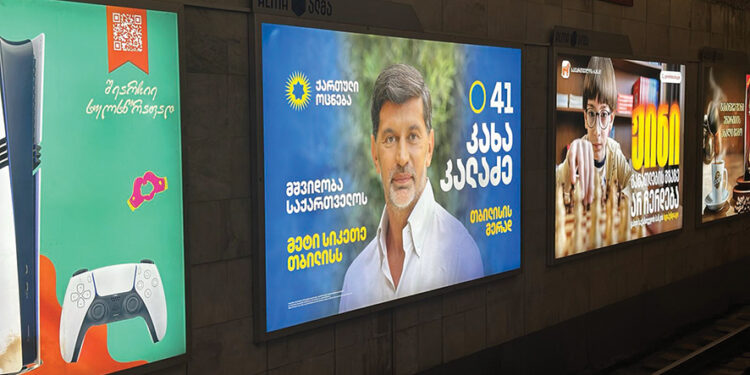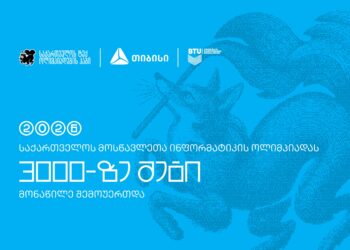As Georgia counts down the final hours before its municipal elections on October 4, the stakes feel far higher than they would for a typical local vote. What’s normally a chance to elect mayors and city council members has become a high-pressure test of the country’s democratic health — and many are wondering whether Georgia’s political system can still earn the public’s trust.
With no reliable polling data, observers are left to sketch out possible outcomes. One scenario sees the ruling Georgian Dream party sweeping local offices, particularly in areas where opposition parties are either boycotting, or too weak to mount a serious challenge. But others fear a more turbulent aftermath: if Georgian Dream claims a broad victory under controversial conditions, protests could erupt in cities like Tbilisi, Kutaisi, and Batumi. A third scenario, arguably no less damaging, imagines a legal deadlock, with disputed results in some municipalities dragging on and eroding confidence further.
What’s making these elections especially tense is the backdrop of deep distrust. New election laws passed by Georgian Dream have made it harder for opposition parties to register, and have limited the role of election observers. Opposition groups also face tighter restrictions on funding. After last year’s heavily criticized parliamentary elections, which independent analysts say may have involved up to 175,000 manipulated votes, many Georgians are entering this vote already bracing for disappointment.
The mood on the ground reflects that anxiety.
Opposition figures, some in prison, are warning of a broken system. In an open letter to the UK’s Foreign Secretary, jailed leaders accused the Georgian government of aligning with Iran, hijacking state institutions, and weaponizing the media. They called on Britain to sanction top Georgian Dream officials.
The letter underscores just how high the stakes have become, framing the election not just as a domestic affair, but part of a larger geopolitical tug-of-war over Georgia’s future.
The ruling party, meanwhile, is digging in. Prime Minister Irakli Kobakhidze has described the election as a battle to defend Georgia’s “order, dignity, and sovereignty,” and has warned that any attempts to stir unrest will be dealt with decisively. He and his party continue to invoke shadowy foreign influences, what they call the “Global War Party,” as a threat to national stability. In a move that caused outrage among critics, Georgian Dream even floated the idea of banning some opposition parties outright in the days leading up to the vote.
International voices aren’t staying silent. Western governments and organizations have issued strong warnings, urging Georgia to ensure transparency, fairness, and safety for observers. The Georgian President’s recent decision to pardon two prominent opposition leaders — Mamuka Khazaradze and Badri Japaridze — was seen as an attempt to appease critics, but it did little to ease fears that the playing field is stacked.
On paper, 17 political parties registered to run in these elections. But after some failed to meet paperwork requirements and others withdrew in protest, only 12 parties remain. Eight major pro-European opposition parties, including the United National Movement (UNM) and European Georgia, are boycotting the vote entirely, calling it a sham designed to cement Georgian Dream’s control. Their absence has cast a long shadow over the election’s credibility.
Even among the opposition parties that chose to participate, internal fractures are showing. Several prominent members of groups like Lelo and For Georgia have stepped down in protest, accusing their own parties of legitimizing a flawed process.
This weekend, Georgia will learn whether October 4 marks a new chapter, or just deepens the country’s long-running political crisis. If the results are widely accepted, Georgian Dream could tighten its grip. But if allegations of manipulation or voter suppression surface, or if people take to the streets, the country may be heading into another season of unrest.
Either way, the outcome will be scrutinized not just by Georgians, but by the international community—especially Western allies who are watching to see whether they can, or should, recognize the results.
By Team GT














